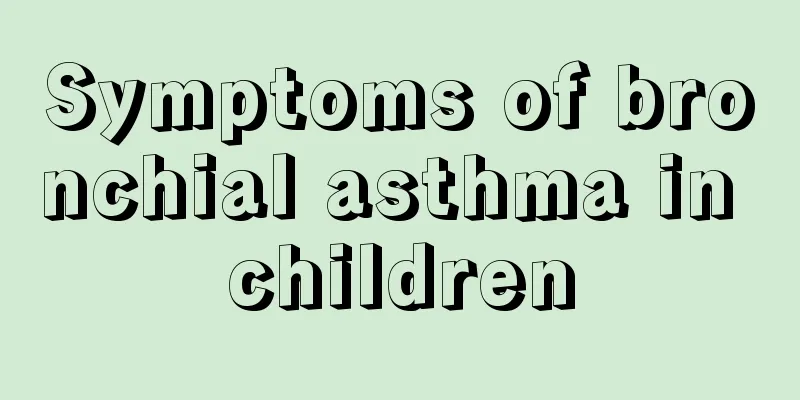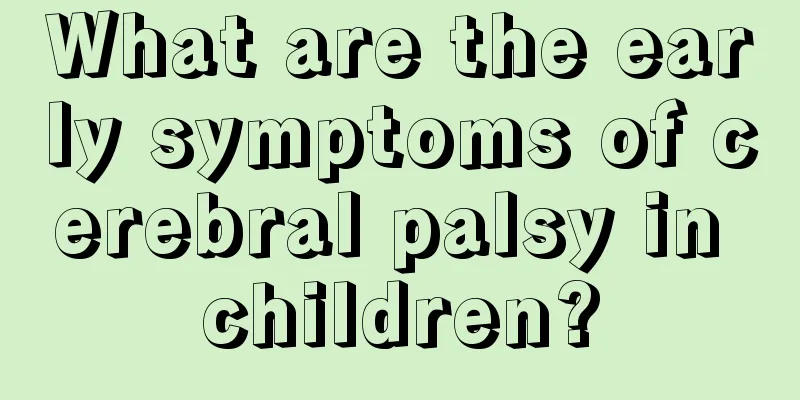What's going on when the baby shakes his head and scratches his ears?

|
I believe that careful mothers will often find that their babies like to shake their heads and scratch their ears in daily life, and some mothers mistakenly think that their babies are sick after discovering this. In fact, it is normal for babies to shake their heads and scratch their ears. In the process of their growth, there is a part called the vestibule. When the vestibule develops, the baby's ears will feel uncomfortable, so the baby will shake his head, scratch his ears, etc. 1. Introduction The vestibule is an organ that controls the body's balance. It is located in the petrous part of the temporal bone of the skull, which is also the inner ear. If there is a problem with the vestibular nerve system in the inner ear, it will cause dizziness. The vestibular system usually begins to develop and seek stimulation after 6 to 8 months, but will disappear naturally after 1 to 1.5 years old, or even earlier in some cases. Therefore, parents don’t need to worry too much. Just cut your baby’s nails frequently and avoid scratching them. Baby shaking his head and scratching his ears are actually good for the development of sensory and motor systems as well as emotions and cognitive abilities. 2. Differentiation However, not all head shaking and ear scratching are normal. How to distinguish? It depends on the following points: 1. Does your baby have too much earwax? Use a small flashlight to check if there is a lot of earwax in your baby's ears. If there is too much earwax, the baby will feel itchy and uncomfortable. Generally, it can be cleaned by gently rubbing with a cotton swab. If that doesn't work, don't force it, ask an ENT doctor to help! 2. Is there a lot of sweat on the back of the baby's head? If the baby is too hot and sweats frequently, he will shake his head or rub his scalp to relieve the itching, which will cause baldness on the back of his head over time. Don’t dress or cover your baby too thickly, keep the room temperature not too high, ventilate the room regularly, and wash your baby’s hair frequently. 3. Is your baby prone to allergies? If the baby has an allergic constitution and is prone to eczema, the eczema on the head will naturally itch, especially for babies who eat formula or are breastfed by their mothers who like to eat high-protein food. Reduce the gastrointestinal burden on your baby or give your baby some probiotics, and the eczema will gradually improve. 4. Does the baby have a fever or cry a lot? If your baby often scratches his ears, cries, shakes his head, and has a fever, you should be careful about otitis media! Babies are very susceptible to otitis media, and if it is not treated in time it will affect hearing and even interfere with language development, affecting their entire life. If you find yellow water flowing out of your baby's ears and he or she doesn't respond or responds slowly when you call him or her, you should be more careful! Go to the hospital as soon as possible! 3. Shaking your head does not mean you are calcium deficient In fact, there is no direct relationship between the two. You need to make a comprehensive judgment based on your baby's diet, growth and development. |
<<: What are the causes of baby's ear deformities?
>>: What is the best food for children to replenish qi and blood?
Recommend
What should I check if my child often has stomach pain?
Stomach pain is the most common type of physical ...
Is perfume harmful to newborns?
Spraying perfume is no longer exclusive to women....
What does the physical examination for the baby to enter the kindergarten check?
Children need to go to kindergarten when they are...
How to treat acute pharyngitis in babies
As parents, we are most reluctant to see our babi...
What are the seven-month-old baby recipes?
When babies are very young, they need to have com...
The child complains of stomachache after eating
Many children have been picky eaters since childh...
What should I do if my child has abscesses?
Studies have found that most pustules on children...
Is it normal for a child to have a temperature of 37.2?
Measuring body temperature is the easiest way for...
What are the developmental standards for a one-month-old baby?
A one-month-old baby's immunity is relatively...
Is it normal for an eight-month-old baby to have a temperature of 374?
Children cannot express their needs, and there is...
What to do if your baby doesn't like to sleep during the confinement period
Generally speaking, babies in confinement usually...
What to do if your child's stool is too hard
The growth process of a baby requires great care....
What are the nutritious lunches for children?
For every family, children play a very important ...
Reasons why children have convulsions without fever
Because children's immunity is relatively low...
How long does a 20-day-old newborn sleep in a day?
Everyone knows that newborns are very sleepy, bec...









